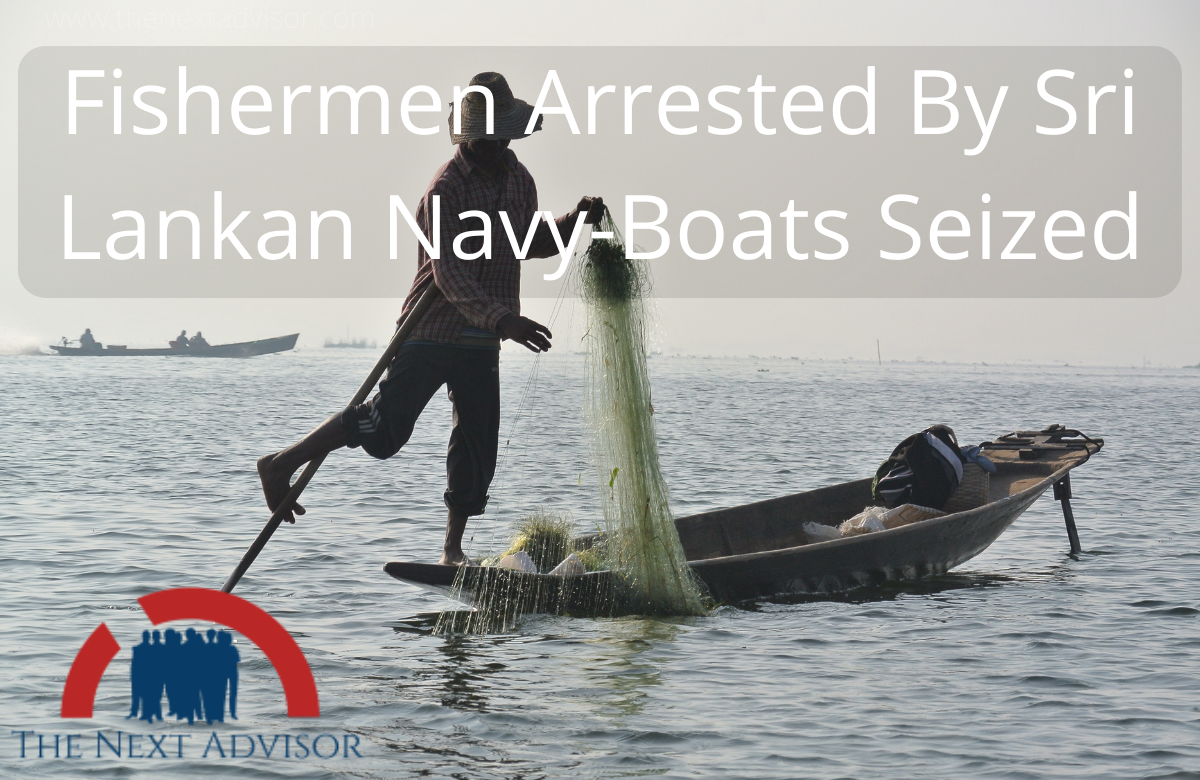The News About Fisherman
-
The Sri Lankan Navy has arrested 12 Rameshwaram Fishermen and seized two of their mechanized boats on the charge of poaching.
-
According to information available with the fishermen, over 400 mechanized boats had been put out to sea with over 1200 fishermen last week.
-
12 Fishermen were fishing near the Dhanushkaodi Thailaimannar region, the Sri Lankan Navy secured them and took them to a camp in Jaffna. They were jailed after being produced in the local court.
Recurring Problem
-
This is the third such arrest in a fortnight.
-
On hearing the arrest of dozen fishermen, TN CN M. K. Stalin wrote to PM Narendra Modi, pointing out that this was the ” third such incident in two weeks and 41 f-men and six fishing boats are in the custody.
What is the issue?
For well over a decade now, fishermen of India and Sri Lanka have been unable to agree on how to share the fishes in the narrow Palk Strait separating the two countries. The cause of the problem is two fold –
-
In 1076, India ceded Katchatheevu to Sri Lanka under the ” Indo Sri Lankan Maritime agreement “.
-
Bottom trawling by Indian Fishermen.
Contrasting Conditions
-
TN Fishermen set out on mechanized boats, owned by other affluent fishermen, and drag large fishing nets through the seabed. While they primarily target fish species and shrimps, the practice of bottom trawling scoops out eggs, young fished, and other marine organisms that eventually die and are thrown back into the sea.
-
The northern Sri Lankan fishermen use traditional methods of fishing who are trying to rebuild their livelihoods after Sri Lanka’s civil war ended in 2009.
The clash now is essentially over competing livelihoods of two Tamil-speaking fisher communities, with a glaring asymmetry in power and resources.
What’s happening now?
It is in the post-war decade, the Sri Lankan fishermen have started voicing concern about depleting catches, owing to incessant bottom trawling by the Indian fishermen.
With the Indian side of the IMBL already ravaged by decades of high profit-yielding bottom trawling, Indian f-men flock to the Sri Lankan side which has more marine resources.
However, the last couple of weeks has heightened tension in the region with the reported death of two Jaffna fishermen following “mid-sea clashes with their Tamil Nadu counterparts ” on January 27 and 29 and the subsequent protest by scores of northern Sri Lankan f-men.
Sri Lankan Navy on alert
In 2022, already 41 fishermen have been arrested. In December 2021 itself, 21 fishermen were added rounded up to already arrested 47 – They are waiting for repatriation, despite having been released from custody.
To add to problems, SL authorities gave go-ahead for the reported auctioning of 140 impounded boats recently which caused surprise and concern to the TN State government and the fishing folk.
To confound the situation further, the Sri Lankan authorities have decided not to allow f-men – annual devotees from Tamil Nadu to attend the festival of St. Antony’s Church, Katchatheevu.
So what to do?
Northern Tamil fishermen repeatedly acknowledge TN’s solidarity and support extended to Sri Lankan Tamils during the years of war and later. But that does not justify the exploitation of resources on which their lives and livelihoods depend.
As of now, the best solution would be for Indian f-men to advance to Deep – sea fishing. But this initiative has not taken off as planned. If the Center gives additional incentives and concessions, there may be more takers now.
Urgently, the growing human cost of the conflict needs to be stopped. Both sides need to maintain restraint while dealing with each other’s fishermen.

























